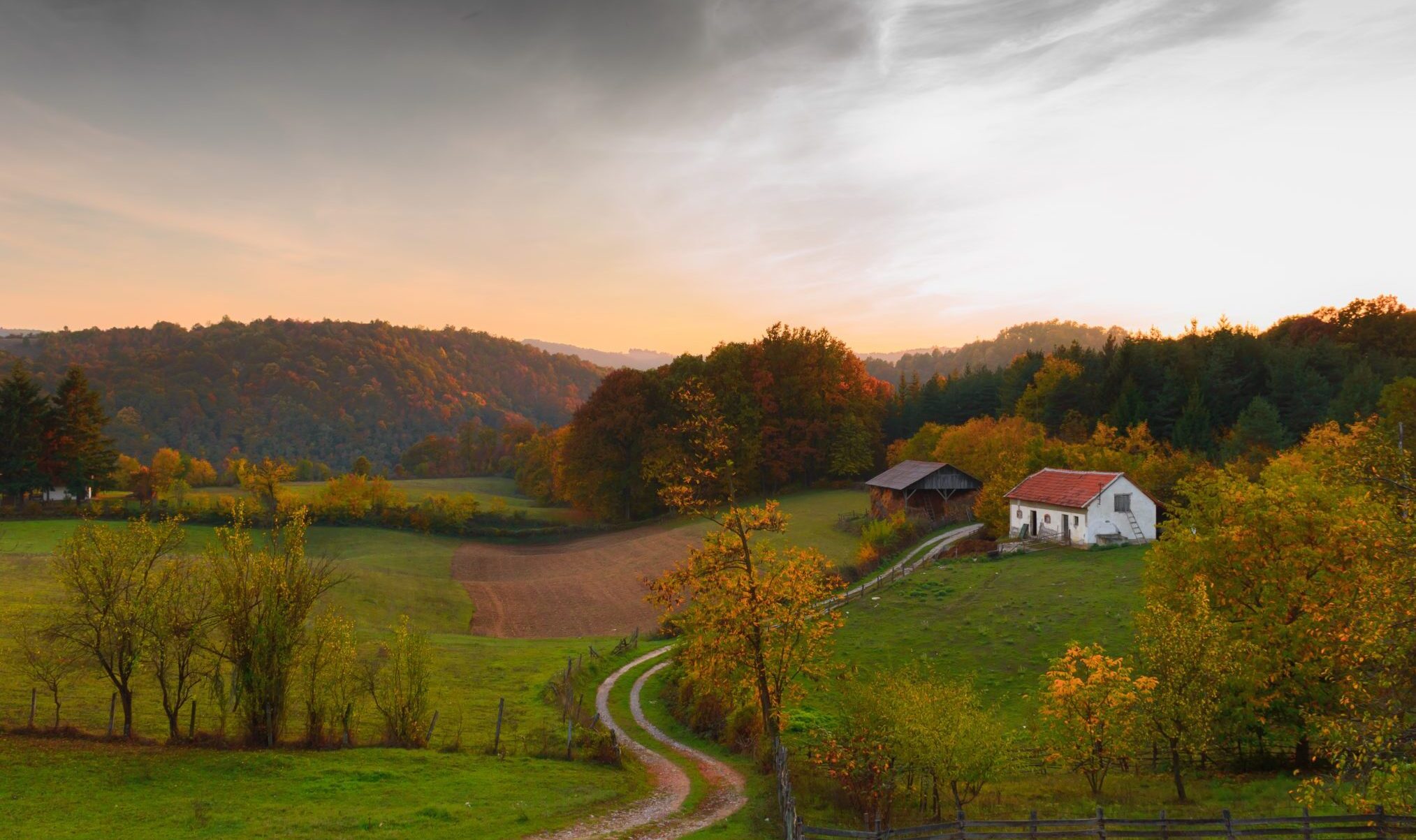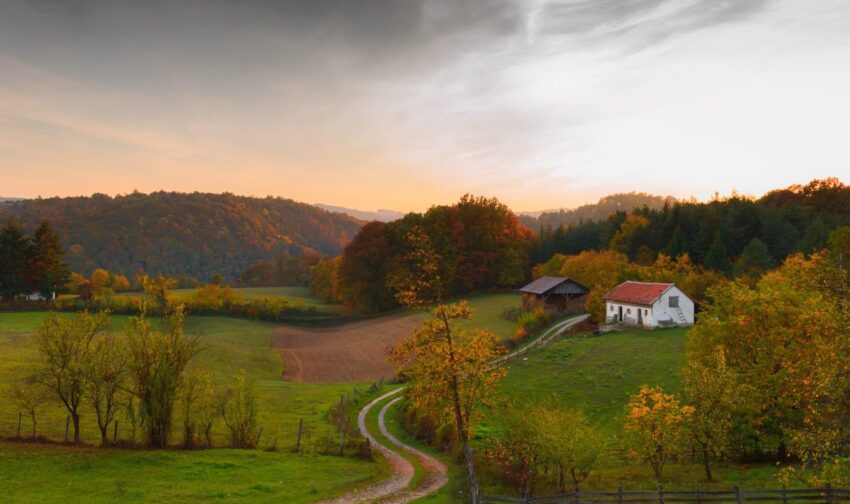When Summer Ends
Our desire for permanence is confronted each new season by the reality of transience.

I learned to grieve the end of summer by watching Elia Kazan’s Wild River.
Released by 20th Century Fox in 1960, Kazan’s Depression-era masterpiece stars Montgomery Clift as Chuck Glover, a Tennessee Valley Authority official tasked with facilitating the removal of unaccommodating old-timer Ella Garth (Jo Van Fleet) from her soon-to-be-underwater land. Among other things, the movie charts the political progress of Kazan himself, a one-time communist who, eventually coming to his senses, later condemned the tenets and practitioners of that false faith. As proof of the authenticity of his political conversion, Kazan testified before the House Un-American Activities Committee and made films that chided liberal views, especially Wild River.
But, as he recounted in his autobiography, Kazan first envisioned Wild River when he was still under the spell of his former creed. Initially, Kazan saw Chuck Glover as a praiseworthy emissary of a noble cause. But, by the time he got around to shooting the movie, he found he was invested in another character—Chuck’s adversary. “Now I found my sympathies were with the obdurate old lady who lived on the island that was to be inundated and who refused to be patriotic, or whatever it took to allow herself to be moved,” Kazan wrote. “I was all for her. Something more than the shreds of my liberal ideology was at work now, something truer, perhaps, and certainly stronger.”
Yet, for Kazan, Chuck has at least one characteristic worthy of admiration: Despite his commitment to the forcible removal of an old lady from her property, Chuck finds himself thoroughly smitten with that old lady’s granddaughter, Carol, who is played, luminously, by Lee Remick. It is she who speaks a few lines that have stayed with me since I first saw the movie 20 years ago—lines that, in fact, helped me understand that it is proper to grieve the passing of each and every summer. At one point in the movie, standing in the doorway on a rain-soaked day, Carol says: “It’s October. I hate to see the summer go . . .”
What is it about that line—and Remick’s dreamy delivery of it—that speaks to me? On one level, Carol is tapping into the melancholy that accompanies the literal passage of each season. But Carol is not simply lamenting something that is already gone but something that is in the process of going—even though it is October and, technically speaking, autumn. She does not say “I hated to see the summer go,” as though it is already gone, but “I hate to see the summer go”—as though the season, even her memory of the season, continues to drift away with each breath she takes. The loss of anything is as incremental as it is inevitable. The leaves do not change all at once; the rain and cold do not arrive overnight. This strikes me as a potent metaphor for the nature of life; our desire for permanence is confronted daily by the reality of transience.
Of course, what Carol says relates, profoundly, to the theme of the movie itself: Like the summer, Ella Garth’s sovereignty over her land will come to an end. The Tennessee Valley Authority will prevail. Carol is generally encouraging of Chuck’s efforts to induce her grandmother to pack up, but she is attuned to the human cost. Yet Carol’s line permits us to mourn the loss of both things. It is sad to see the summer go, and it is sad to see a way of life terminate. We can and should shed tears over these things.
It is such a simple snippet of dialogue—nine words strung together and delivered in a rueful whisper—but it has all of the power and force of A. Bartlett Giamatti’s far more famous and fulsome tribute to the game of baseball, which, naturally, doubled as a dirge for the summer, the classic essay “The Green Fields of the Mind.” For Giamatti, the former commissioner of Major League Baseball (who rightly banned Pete Rose from the game), baseball and summer were inevitably yoked together.
“The game begins in the spring, when everything else begins again, and it blossoms in the summer, filling the afternoons and evenings, and then as soon as the chill rains come, it stops and leaves you to face the fall alone,” Giamatti wrote. At the time he set these words down, Giamatti perceived the same thing that Carol had: the fleetingness of the beloved season and, thus, of life itself. “Somehow, the summer seemed to slip by faster this time,” he wrote. “Maybe it wasn’t this summer, but all the summers that, in this my fortieth year, slipped by so fast. There comes a time when every summer will have something of autumn about it.”
Dear reader, I should at this point level with you. Speaking personally, I am not overly fond of the summer. I do not participate in summer sports, live near a beach, go on vacations, or know how to swim. I opt out of much of the merriment of the season. On the other hand, I derive great satisfaction from the autumn. It is then that I take walks on the lonely byways not far from where I live; it is then that I pull out my Shetland sweaters to insulate myself from even a mildly cool evening. My yard, largely unattended by me during successive heatwaves and droughts over the summer, becomes a place of work: to prune bushes, to rake leaves. I pretend otherwise, but it gives me a boost to see pumpkins appear long before All Hallows’ Eve. I would welcome the cold rain that Carol laments. I don’t particularly hate to see the summer go, and yet when it starts to . . .
When it comes down to it, artistic expressions of summer’s end have a certain persuasiveness. At the end of Ingmar Bergman’s great film Cries and Whispers, we are shown a visualization of a diary entry written by the lead character Agnes (Harriet Andersson), who, by this point, has perished from cancer. In the diary, which is read and which we see in beautiful images conjured by cameraman Sven Nykvist, Agnes recalls venturing outside with her sisters on the significant date of September 3—a date just on the precipice of fall. Surely Bergman did not make the choice arbitrarily. Agnes notes that the weather is changing, and she cleaves to what is in the process of ending. “A chill in the air tells of autumn’s approach,” Agnes says, “but the days are still lovely and mild.”
The post When Summer Ends appeared first on The American Conservative.
Click this link for the original source of this article.
Author: Peter Tonguette
This content is courtesy of, and owned and copyrighted by, http://www.theamericanconservative.com and its author. This content is made available by use of the public RSS feed offered by the host site and is used for educational purposes only. If you are the author or represent the host site and would like this content removed now and in the future, please contact USSANews.com using the email address in the Contact page found in the website menu.








